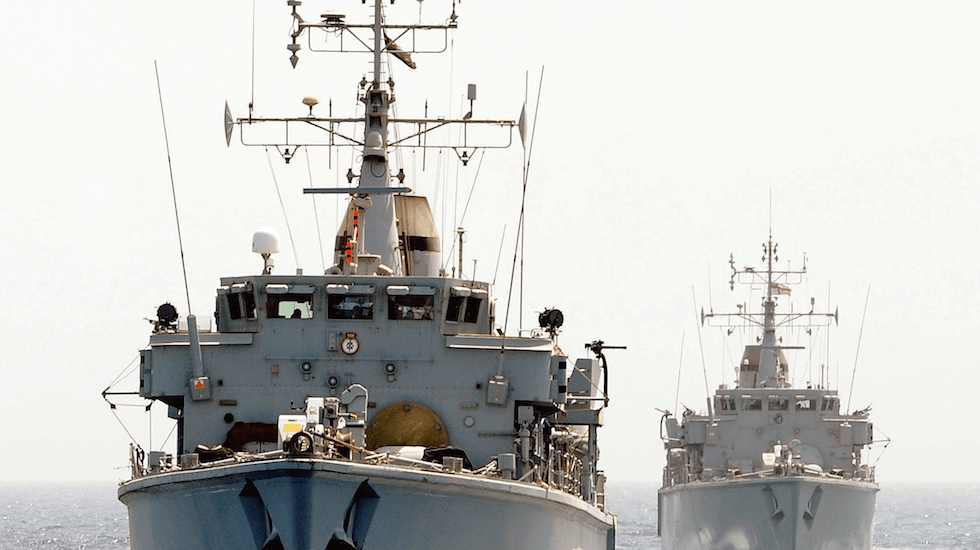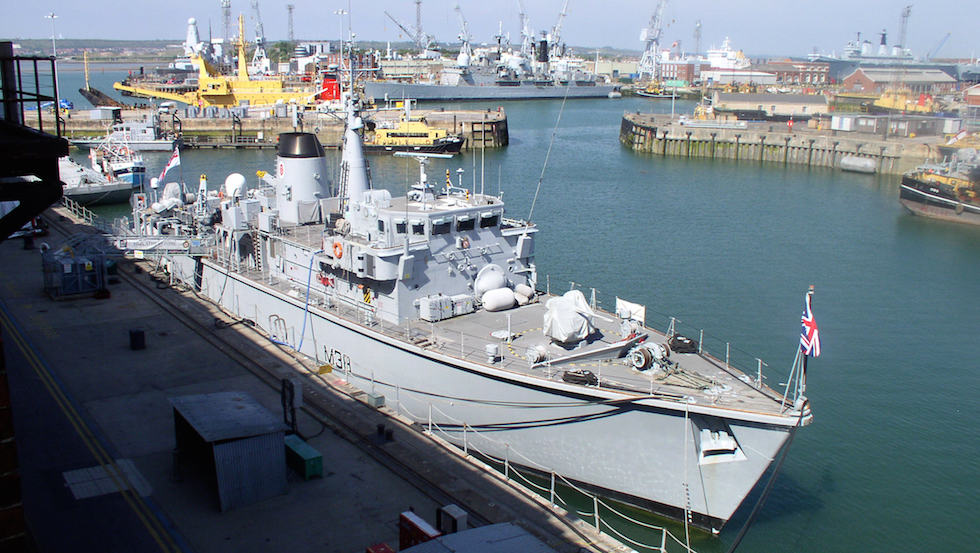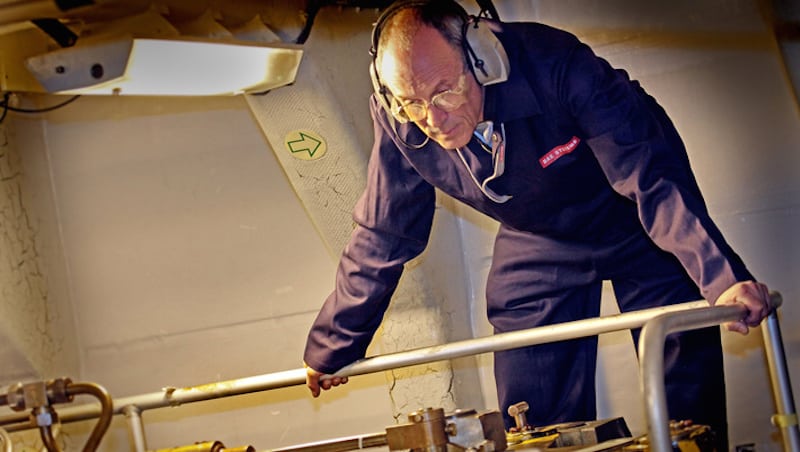What do you do at BAE Systems?
I work within the Maritime Services business unit and am the Project Engineering Manager for the Hunt Class (mine countermeasures vessel) re-propulsion project. This project centres around upgrading a 40-year-old propulsion system to a modern, more efficient, reliable system, and integrating the equipment into the Glass Reinforced Plastic (GRP) vessel.
I am responsible for the engineering output of the team, lifecycle management, safety, integrity of the system within the scope of the project, and occasionally making the tea.

How long have you been with your current employer? Also, what significant work experience have you had prior to joining your current employer?
I joined the BAE Systems graduate scheme nine years ago and worked on numerous projects to gain experience across the business, mainly in Engineering and Project Management placements. After four years I joined General Electric in the oil and gas industry and worked as a Mechanical Engineer in the design of wireline tools, which provided great exposure to the engineering and design process, technical problem solving and integration of technology into product. This provided me with the experience to gain Chartered Engineer professional registration status with the IMechE in 2014. In 2015 I returned to BAE Systems as the Project Engineering Manager and have been working on the project for approaching two years, which has flown past.
What did you read for your first degree?
I studied an MEng in Design and Manufacture at Loughborough University, graduating in 2008.
How did you become aware of the Mastership?
My manager at the time had studied Systems Engineering at Loughborough University and approached me as to whether I was interested in the Mastership. I had learnt a lot from his approach to management and problem solving, which was part of the reason I jumped at the opportunity to do the scheme.
How long have you been on the Mastership and what are you specialising in?
I have now been on the scheme for 15 months and completed 60 of the 120 credits required for the PgDip, prior to progressing onto the MSc and thesis. The scheme allows the students to select a number of elective modules as you progress through and these can be tailored as you develop to match your interests and employer requirements. I have particularly enjoyed the Soft Systems Engineering and human-centric subjects, as this seems to be a polar opposite to traditional engineering studies but it is still very relevant to the types of problems seen in organisations. I have not chosen a thesis subject yet but I am expecting it to be in something linked to Soft Systems Engineering dealing with complex problems.
You’re clearly an experienced engineer – in what ways is the Mastership keeping pace with your professional engineering experience, and that of your peers?
The great thing about Systems Engineering is that it is an ‘approach’ rather than hard and fast method so it can be applied to almost any problem. This means we can all apply it irrespective of our experience, seniority or technical competence. The university course is aligned with the UK Standard for Professional Engineering Conference (UK-SPEC) so all the education I have undertaken as part of the scheme counts towards Continuous Professional Development (CPD) for the IMechE and INCOSE.

How is the course weighted in terms of practical work and time in the classroom?
The scheme combines academic study at Cranfield Defence Academy with the practical application of the principles within your employer’s work environment. The academic study is firmly grounded on real life projects in the defence industry, meaning that even the academic aspect is closely related to the work environment. There are no strict time targets for the vocational aspect of the scheme so it is largely up to the students and employers in terms of the practical experience you can gain. Students are provided with an academic and employer-mentoring scheme and are expected to drive their own development and progression towards reaching the INCOSE practitioner level by the end of the course.
Can you describe the ways in which your employer is providing input into what you do on the Mastership?
BAE Systems is extremely supportive of the scheme and provides individual mentoring specifically for the company’s students on the course, which ensures development opportunities are identified and acted upon. The academic study ensures the student’s education is up to date so the students can quickly become a point of contact for new System Engineering approach within the business. I have been asked to join the company's Systems Engineering Steering Group, which allows me to give back to the business in terms of up-to-date practices and academic thinking on the subject.
What do you like most about the Mastership and why?
The Cranfield course has changed recently to allow industry students to attend alongside military and MOD students. This makes the discussions and teamwork exercises much more thought provoking as you get to see the varying perspectives on the projects, industries and systems you are studying.

Can you describe the benefits you hope to gain from undertaking the course?
I genuinely think the Systems Thinking approach changes how you think about problems and I have already seen it benefit my work, management skills and also outside of work. Designing my new kitchen included a number of systems engineering tools! The SEMAP and the skills and thinking it develops align well with Engineering Management roles so I am hoping it will help me to become a more effective Engineering Manager and provide the skills and opportunities to work in more complex and interesting projects.
Have you taken advantage of Cranfield's 60,000-member worldwide alumni network?
So far I have had limited involvement in the networking outside of my fellow course members but I intend to get more closely involved in the INCOSE activities and use the contacts I have made through the scheme to widen my professional network.
Thank you Martyn!




Nanogenerator consumes CO2 to generate electricity
Nice to see my my views being backed up by no less a figure than Sabine Hossenfelder https://youtu.be/QoJzs4fA4fo